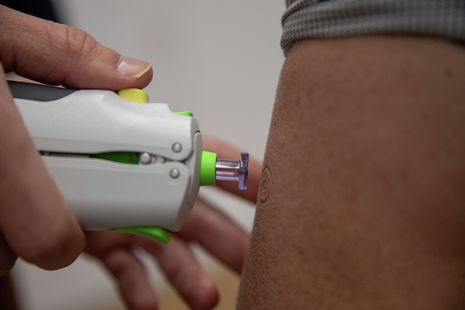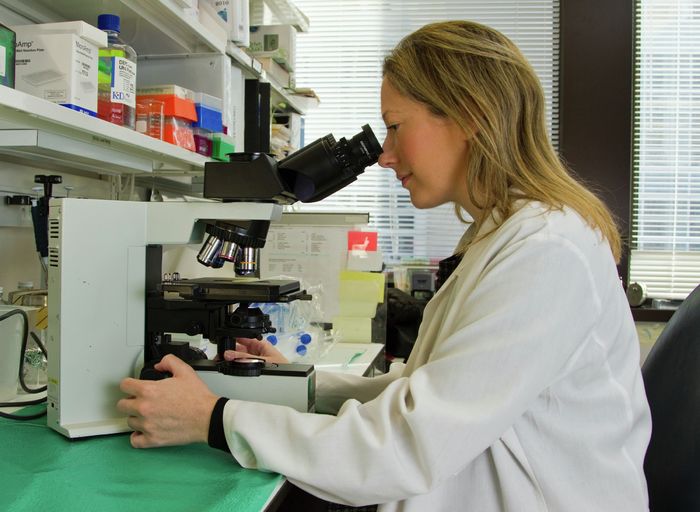Cambridge’s needle-free COVID vaccine begins clinical trials
Developed at the University and spinout company DIOSynVax, the vaccine is delivered by a blast of air into the skin

Cambridge University has developed a new needle-free vaccine to protect against COVID-19 and future coronaviruses. Instead of using the traditional needle, the vaccine - known as DIOS-CoVax - is delivered by a high-powered jet of air that allows it to penetrate through layers of skin.
The vaccine was developed by Professor Jonathan Heeney at the University and spin-out company DIOSynVax. “This isn’t simply ‘yet another’ coronavirus vaccine,” explained Saul Faust from the University of Southampton during the safety trials. “This technology could give wide-ranging protection to huge numbers of people worldwide.”
After safety trials were conducted in Southampton in December 2021, the DIOS-CoVax vaccine scheme was awarded $42 million in March 2022 by the Coalition for Epidemic Preparedness Innovations (CEPI). CEPI is backed by Bill and Melinda Gates, the Indian and Norwegian governments and the World Economic Forum.
Cambridge University Hospitals NHS Foundation Trust are now encouraging healthy volunteers aged 18-50 in Cambridge to participate in the clinical trial of the vaccine. “We’re excited to be bringing our vaccine ‘home’ and are looking to recruit healthy volunteers to help in this crucial stage of development towards what we hope will eventually become a universal coronavirus vaccine,” said Heeney.
Depending on the success of the clinical trials, the vaccine could be scaled-up and manufactured as a powder to boost global vaccination efforts, particularly in low and middle income countries.
The long-term aim of the vaccine programme is to “minimise future pandemic threats” by targeting structures that are “unlikely to change in the future”.
Heeney said: “Our vaccine is innovative, both in terms of how it aims to protect against the virus responsible for our current pandemic and future coronaviruses, but also in how it is delivered.”
Heeney continued: “As new variants emerge and immunity begins to wane we need newer technologies. It’s vital that we continue to develop new generation vaccine candidates ready to help keep us safe from the next virus threats.”
“These next generation vaccines should protect us against the variants we’ve seen so far – alpha, beta, delta variants, for example – and hopefully future-proof us against emerging variants and potential coronavirus pandemics.”
 News / Colleges charge different rents for the same Castle Street accommodation2 March 2026
News / Colleges charge different rents for the same Castle Street accommodation2 March 2026 News / News in Brief: waterworks, wine woes, and workplace wins 1 March 2026
News / News in Brief: waterworks, wine woes, and workplace wins 1 March 2026 News / Angela Merkel among Cambridge honorary degree nominees27 February 2026
News / Angela Merkel among Cambridge honorary degree nominees27 February 2026 News / Climate activists protest for ‘ethical careers policy’1 March 2026
News / Climate activists protest for ‘ethical careers policy’1 March 2026 News / King’s hosts open iftar for Ramadan3 March 2026
News / King’s hosts open iftar for Ramadan3 March 2026









